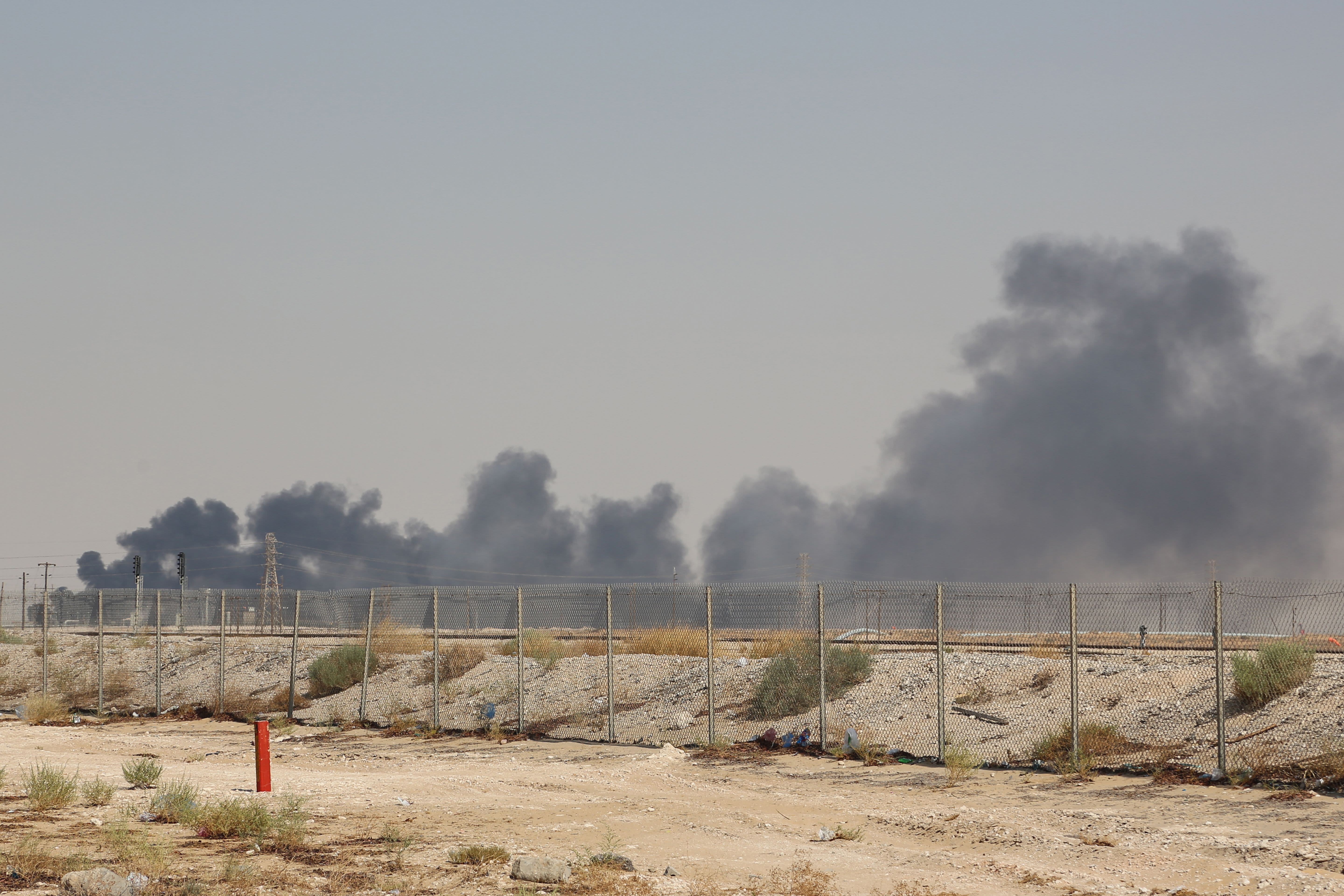Smoke billows from an Aramco oil facility in Abqaiq after drone attacks sparked fires at two Saudi Aramco oil facilities.
AFP | Getty Images
The attacks on critical oil production facilities in Saudi Arabia over the weekend will “effectively” wipe out the world’s spare oil capacity, an expert from S&P Global Platts said on Monday.
Drone strikes attacked a oil processing facility at Abqaiq and the nearby Khurais oil field on Saturday, knocking out 5.7 million barrels of daily crude production — or 50% of the kingdom’s oil output. That’s more than 5% of global daily oil production.
The country’s national oil company Saudi Aramco reportedly aims to restore about a third of its crude output, or two million barrels, by Monday.
“This heightens the risk premium, it puts a lot of pressure on the supply side,” said Sarah Cottle, global head of market insight at S&P Global Platts.
“This incident effectively eliminates the world’s spare capacity,” Cottle told CNBC’s “Squawk Box” on Monday, though she added the longer-term outlook is bullish due to the immediate need to draw down on crude stockpiles.
International benchmark Brent crude oil price spiked by as much as 19% on Monday to $71.95 a barrel while U.S. West Texas Intermediate (WTI) jumped more than 15% to a session high of $63.34 a barrel, before gains were pared later.
Brent crude was up 10.7% at $66.67 a barrel while WTI was up 9.6% at $60.12 a barrel at 10.27 a.m. HK/SIN.
Cottle’s view was also borne out by energy consultancy Wood Mackenzie.
“This attack has material implications for the oil market, as a loss of 5 million barrels per day of supplies from Saudi Arabia cannot be met for long by existing inventories and the limited spare capacity of the other OPEC+ group members,” wrote Alan Gelder, vice president for refining, chemicals and oil markets at Wood Mackenzie.
“A geopolitical risk premium will return to the oil price,” Gelder said, in a note on Monday.
Prior to the weekend attack, oil prices were weighed by supply surplus as well as slowing global growth concerns amid the U.S.-China trade dispute.
Just last week, both the Organization of the Petroleum Exporting Countries (OPEC) and the International Energy Agency this week said oil markets could end up with a surplus in 2020, despite an agreement by OPEC and its allies to limit supplies.
But if the outage in Saudi Arabia — one of the world’s largest oil exporters — continues for a prolonged period of time, oil prices could easily rise over $80 a barrel, said S&P Platt’s Cottle.
Abqaiq is the world’s largest oil processing facility and crude oil stabilization plant with a processing capacity of more than 7 million barrels per day.
Prices could move far higher in the event of a prolonged outage or ratcheting up of tensions including retaliatory strikes, Cottle said.
The U.S. has blamed Iran for the drone strikes on those important facilities. Secretary of State Mike Pompeo said in a tweet Saturday Iran has launched an “unprecedented attack on the world’s energy supply.”
Trump also responded in a tweet after the attacks, saying that the U.S. is “locked and loaded.”
— CNBC’s Yun Li and Reuters contributed to this report.
